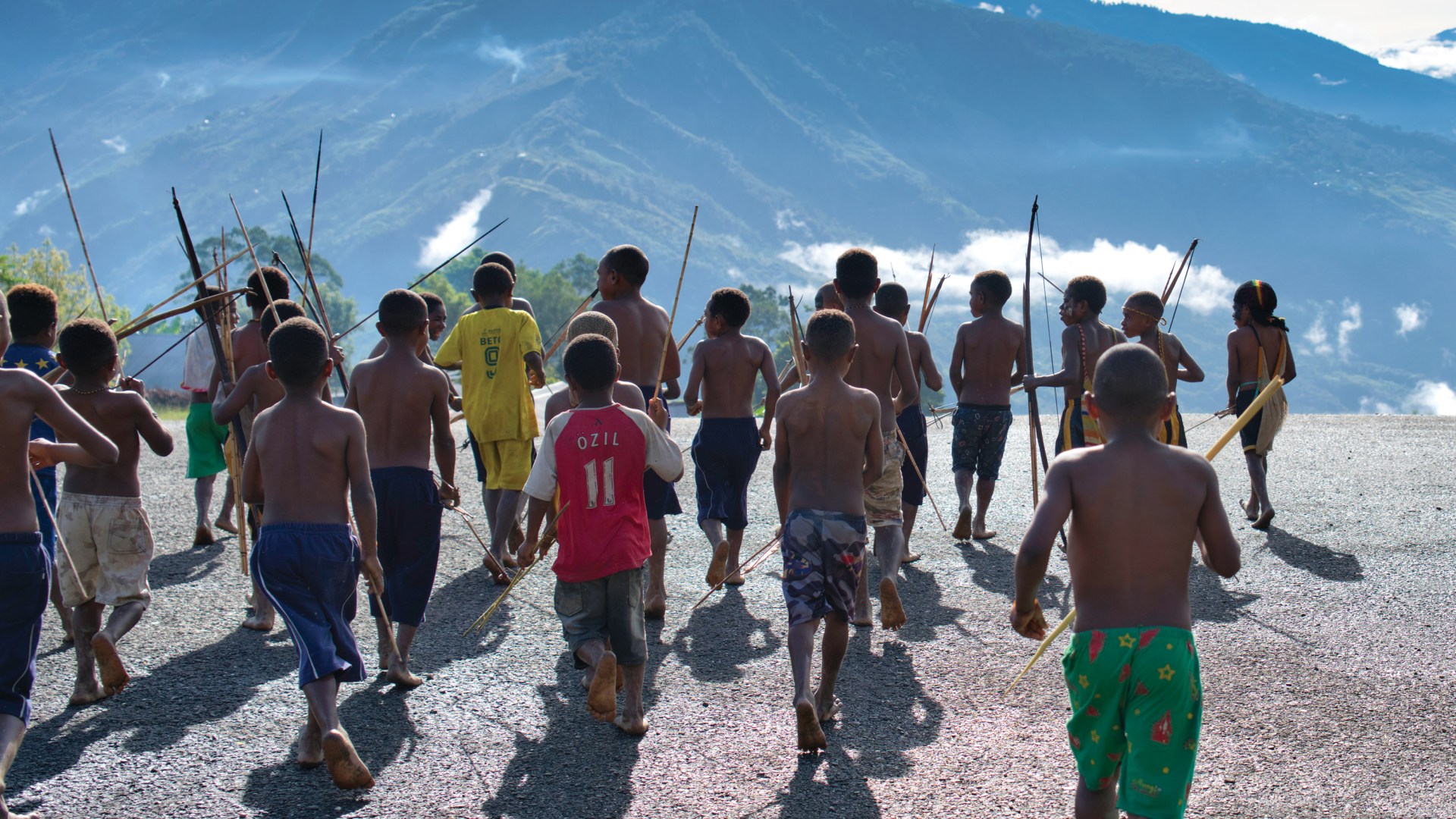High above the interior of Papua, the pilot is getting anxious. It’s later in the morning than he wanted, and the clouds are thickening. Somewhere below is the tribal village of Mokndoma. Every now and then the clouds part, revealing its dwellings for a moment, perched on a jungle slope. But the small prop plane is running low on fuel and lacks a clear, windless shot at the grass landing strip.
The pilot goes back and forth with his colleague, whose own plane, bearing the other half of a delegation of Christian businesspeople, scholars, and journalists, landed successfully mere minutes before but now might be stuck there until the next morning. Banking in tight circles, he finally calls it. Mokndoma will have to wait.
Such are the challenges missionaries confront in one of the most remote places on the planet. Months after this group left Papua, an American pilot with Mission Aviation Fellowship (MAF) lost her life there. Early on the morning of May 12, Joyce Lin’s Kodiak aircraft faltered and plunged into the waters of Lake Sentani. The MIT and Gordon-Conwell Theological Seminary graduate had been on her way to deliver coronavirus supplies to Mamit, another tribal village in the highlands.
Her death focused many Christians worldwide, if only briefly, on this far corner of the world where missionaries have been working for generations to share the gospel and translate the Bible for hundreds of animistic tribes.
Today, a creative form of partnership between foreign missionaries and native Christians allows both to focus their unique gifts in the body of Christ.
The island where Lin died is the second largest after Greenland and boasts the tallest mountains between the Himalayas and the Andes. Its tribes were once known for their constant warfare and spiritual rituals. The western half, Papua, is the largest and easternmost province of Indonesia and has been slow to be served by its faraway government. (The eastern half, the nation of Papua New Guinea, has even more tribes and more needs.)
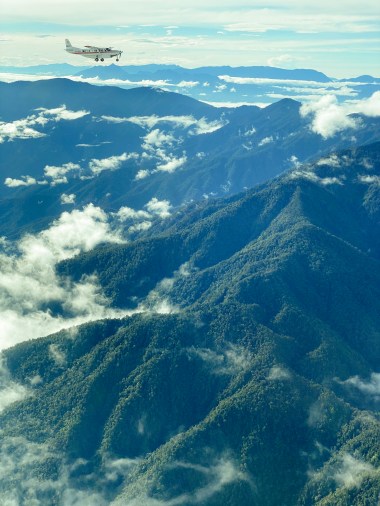 Jeremy Weber
Jeremy WeberMissionary activity in Papua has always been laced with risk. As American Christians have honored the memory of Jim Elliot and four fellow missionaries martyred in Ecuador, Australian Christians celebrate the legacy of Stan Dale.
A former commando, Dale plunged deep into the mountainous heart of the island after World War II and reached out to the Yali tribe. One day in 1966, he was attacked and shot with five arrows, but he survived and resolved to continue. In 1968, a different group of Yali warriors attacked him, this time with dozens of barbed arrows.
Dale and his friend Philip Masters both died on a riverbank that day. Yet the gospel spread among the tribe, and the Bible translation that Dale began on the Gospel of Mark was later completed, making the Yali the first of Papua’s hundreds of tribes to have the entire Bible in their language.
After decades of missionary investment from Australians, Americans, and others, most of Papua’s 3.3 million inhabitants are identified in Indonesia’s most recent census as Christians. Thousands of churches dot the hillside villages that were once filled with nomadic animists.
However, many are nominal or syncretistic in their beliefs, and the need remains great for discipleship and Bible translation. Of Papua’s 275 languages, fewer than 50 have a complete New Testament, and a similar number have mere portions translated. Only a handful have complete Bibles.
As part of the delegation, CT visited five villages weeks before the World Health Organization declared COVID-19 a pandemic and the government cut off outside access to Papua. According to the missionaries in these villages, the severe education and health needs of the local people are among the most challenging obstacles they face in their efforts at Bible translation.
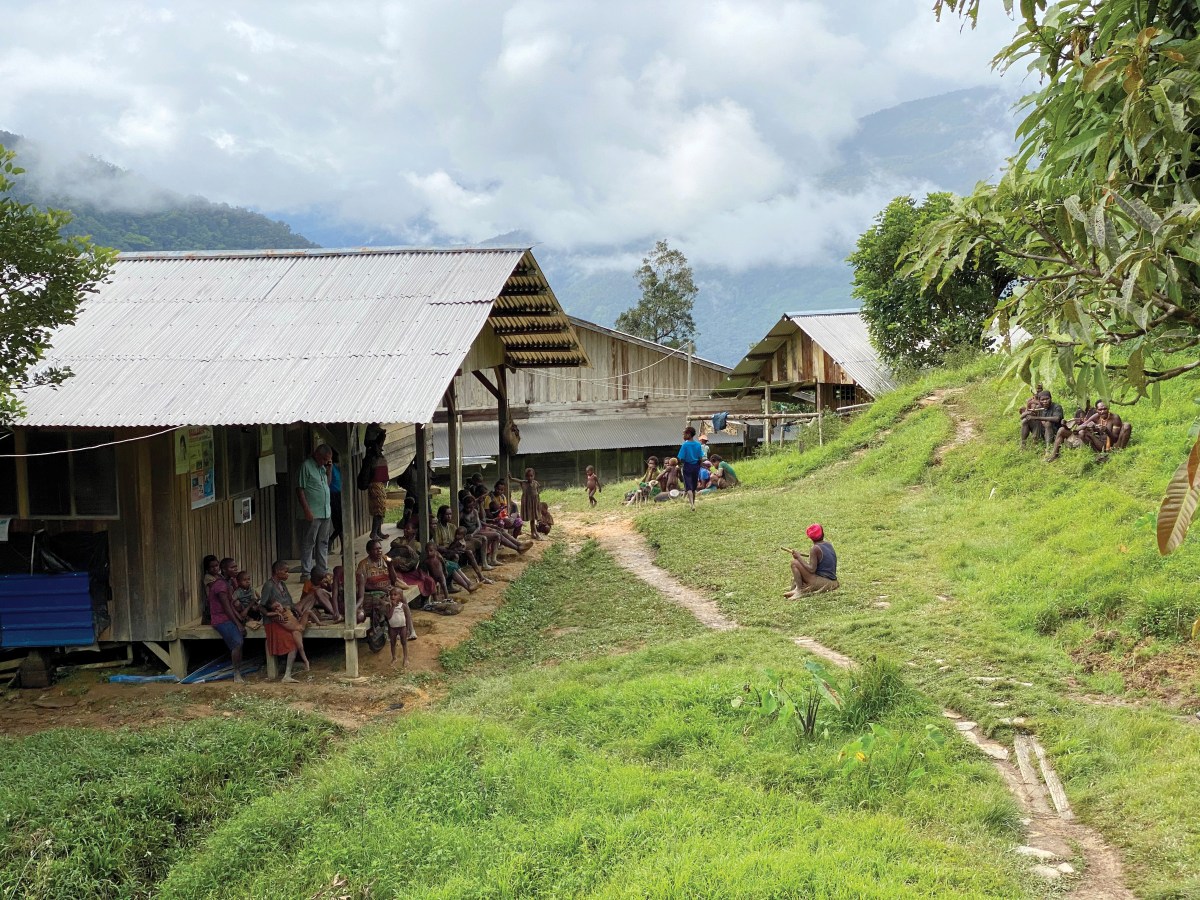 Jeremy Weber
Jeremy WeberIn the village of Daboto, Stephen Crockett and his wife, Carolyn, have served the Moi people since 2000 through Ethnos360 (formerly New Tribes Mission). “Our priority is their spiritual welfare. We want them to hear the gospel and grow into a mature, thriving church,” said the missionary from Ohio. “But we are very much aware of their great needs physically.”
He describes his prayer checklist of needs as “overwhelming.” Many are logistical: obtaining supplies from the coast, coordinating schedules with pilots, interacting with local officials, arranging emergency medical care for remote patients. And the results can come slowly: It took eight years to build the village’s dirt runway. “We spent so many years being woken up at all hours of the night by needy people, not knowing how we could do everything,” he said.
The missionaries were keenly aware of the need for Bibles. “It’d be easy to preach there for all your life and have nobody remember in the next generation,” one missionary said. “But if you leave a Bible behind that they can read, it makes all the difference.”
But how could they translate when there were such urgent and constant needs for schooling and medicine?
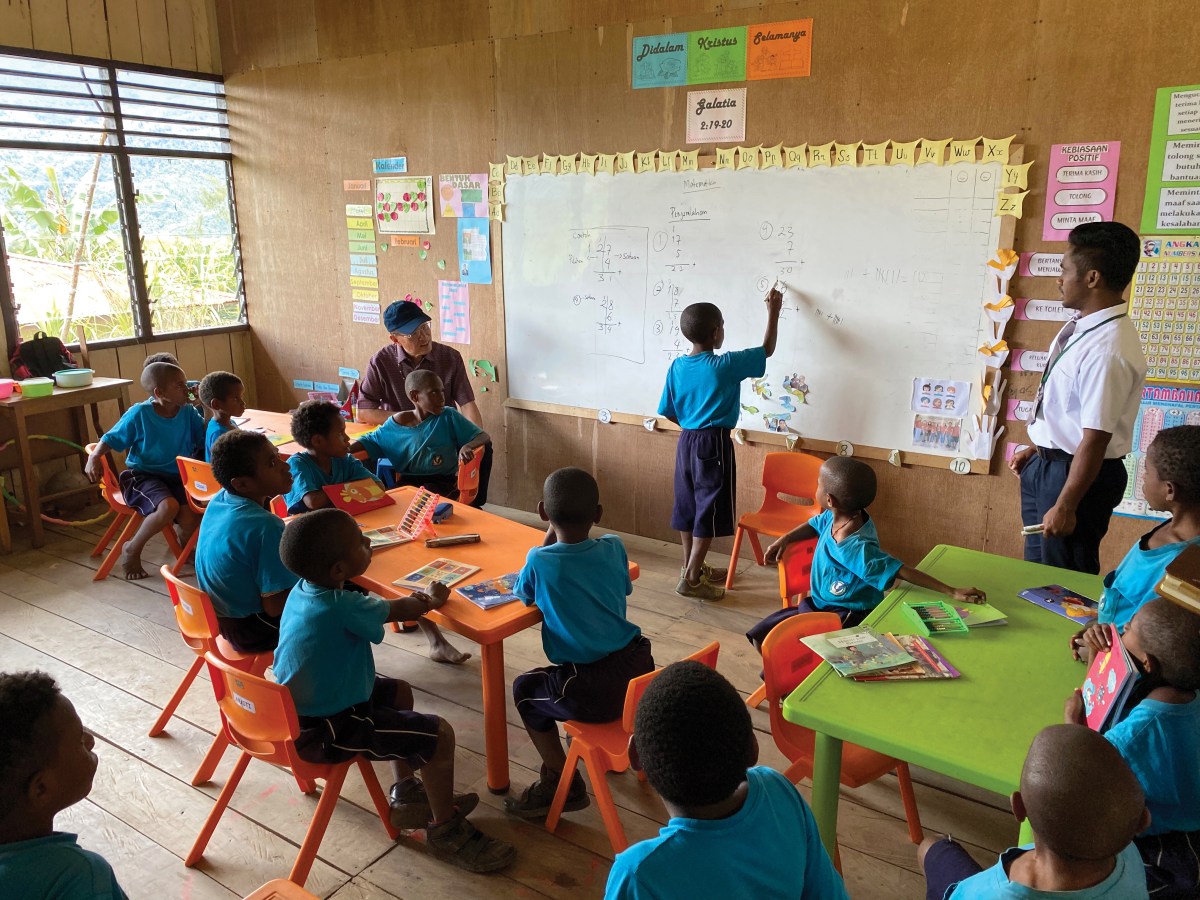 Jeremy Weber
Jeremy WeberEnter Yayasan Pendidikan Harapan Papua (YPHP), a Jakarta-based foundation that provides Christian teachers and health care workers for rural areas. The founder, Indonesian Christian businessman James Riady, saw that the Indonesian government had made efforts to better integrate Papua, most prominently evidenced by a massive new soccer stadium under construction near the Sentani airport. But the government has difficulty staffing the region’s schools and clinics.
Many teachers only appear at schools to administer final exams. The nearest public clinic is often a three-day walk away, with no guarantee that it will be staffed upon arrival. Government workers can be absent for months, waiting in the local capital, Jayapura, for infrequent paychecks to arrive.
“No one will come to Papua to work unless called by God,” Riady said. “Government efforts at education and health care in remote areas fail because those sent are not called.”
Back on the west side of Jakarta on the island of Java, Riady’s family foundation operates a Christian university that includes teaching and nursing colleges. Students from 31 provinces receive free tuition if they commit to five years of volunteer service after graduation. Many of the 2,500 alumni have chosen to serve in the poorest and most remote areas of Indonesia’s 6,000 inhabited islands.
YPHP currently serves eight villages in Papua, operating eight schools and five clinics. In 2020, 50 full-time teachers taught 870 children, while 12 nurses and a doctor treated 8,000 patients.
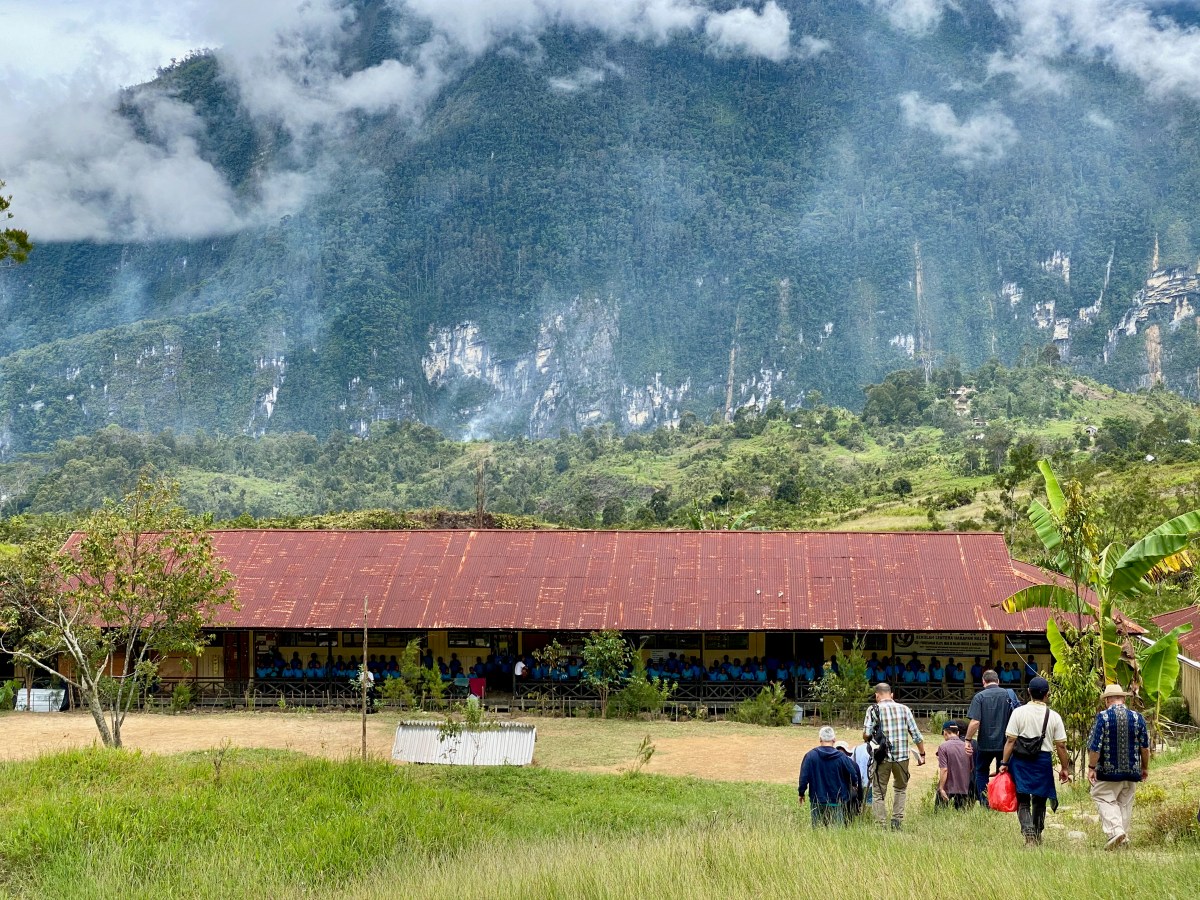 Jeremy Weber
Jeremy Weber“I’m ashamed that with all the [foreign] missionaries who care about the people here in Papua, I’m Indonesian and didn’t even know there were people here without education,” said Henny, a self-described “city girl” from Jakarta who’s now one of seven gurus (Indonesian for teachers) serving 140 students at a Sekolah Lentera Harapan (Hope Lantern School) in the alpine village of Nalca. “I asked to be sent here. My family does not agree, [but] I came here because I know my purpose and my calling.”
And gurus like her—three-quarters of whom are not Papuans—are beloved. In Mokndoma, the YPHP delegation was welcomed with a pig roast—no small gesture in a culture where pigs are so valuable that women used to breastfeed them and fingers would be cut off in mourning when one died. Before visitors depart a village, YPHP teachers and clinic workers often sing “Melayani,” a reflective, repetitive worship song:
Serve, serve more truly;
God first served me.
Love, love more truly;
God first loved me.
Forgive, forgive more truly;
God first forgave me.
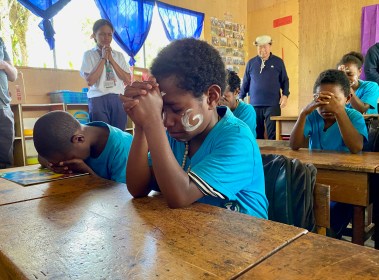 Jeremy Weber
Jeremy WeberThe partnership is essential on both sides. YPHP looks to the long-term missionaries, many of whom have been present in Papua for decades, to build trust with tribes and provide stability for the village schools and clinics. The Papuans, with their dark skin and very curly hair, view the “straight hairs” coming from Jakarta almost as foreigners, even though they are fellow Indonesian citizens.
In turn, YPHP allows the missionaries to focus on their core calling—the spiritual well-being of the people—and to make swifter progress on Bible translation and discipleship. “When YPHP came in 2016 and offered to check off a number of the boxes,” Crockett said, “it was a dream come true—a huge answer to prayer.”
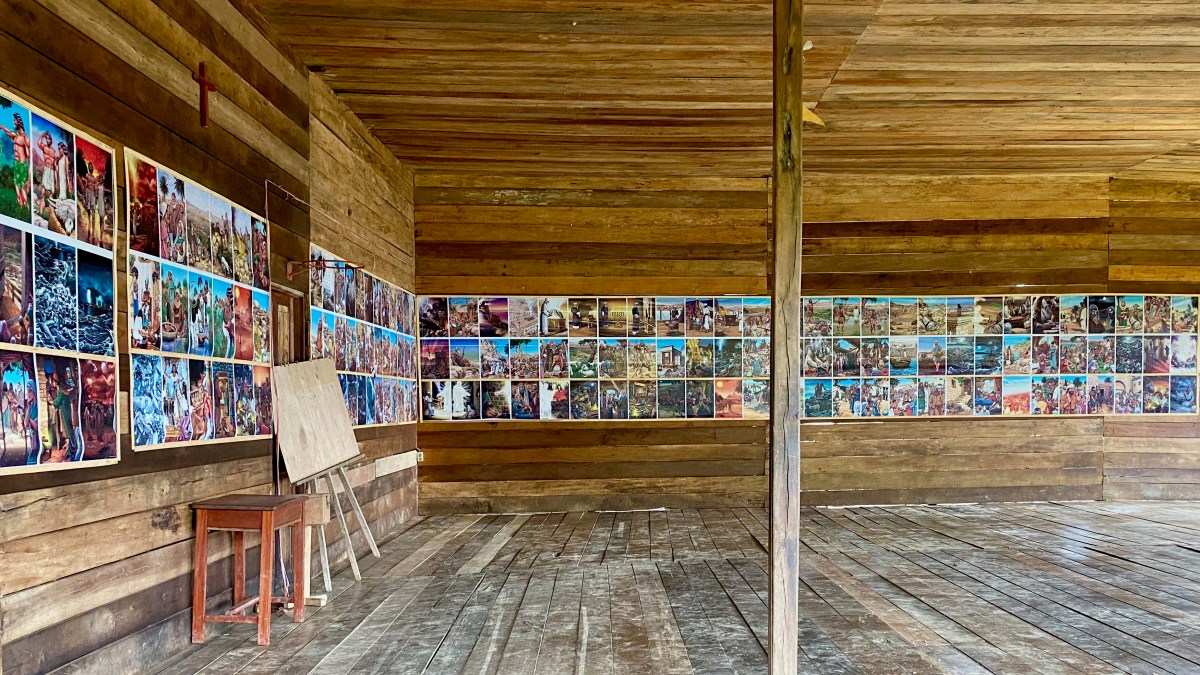 Jeremy Weber
Jeremy WeberHe expects to finally complete the New Testament in the Moi language within three years, and then he will focus on augmenting 1,000 key verses from the Old Testament with 4,000 more. The 500-member tribe, which maintains a “stone-age lifestyle” in many ways, is now two-thirds literate, he said. “They use it to read Scripture. They have no other need to read.”
Crockett’s church, lined with vivid drawings that teach the narrative arc of the Bible from Creation to Christ to the early church in Acts, has produced a crop of elders capable of discipling believers once his family leaves. He gestures to the opposite side of the valley. “There’s a village that has been taught the New Testament through Romans, and I’ve never even set foot there.”
The other critical partners are the aviation ministries. Mounted on the wall in the MAF main office in Sentani are plaques honoring seven pilots who died in Papua in the 1970s and 1980s. “In my first two years here, I made 11 caskets,” said Wally Wiley, chief adviser of MAF Papua. Joyce Lin was MAF’s first fatality in 23 years.
 Jeremy Weber
Jeremy WeberNear the plaques are bookshelves filled with colorful Bible translations of all shapes and sizes. “This is what we’re here for,” Wiley said. The pilots are as committed to Bible translations as the translators themselves.
MAF serves dozens of missions and other clients across 150 villages, but the YPHP schools have become one of its top priorities. “Outside of the gospel, the greatest need we have here is education and health care,” said Wiley, who over his four decades in Papua has become an Indonesian citizen and founded the island’s main Hope Lantern School in Sentani. “Producing a new generation of godly men and women to take up their place in society as leaders is key to seeing this province become a shining light to the world.”
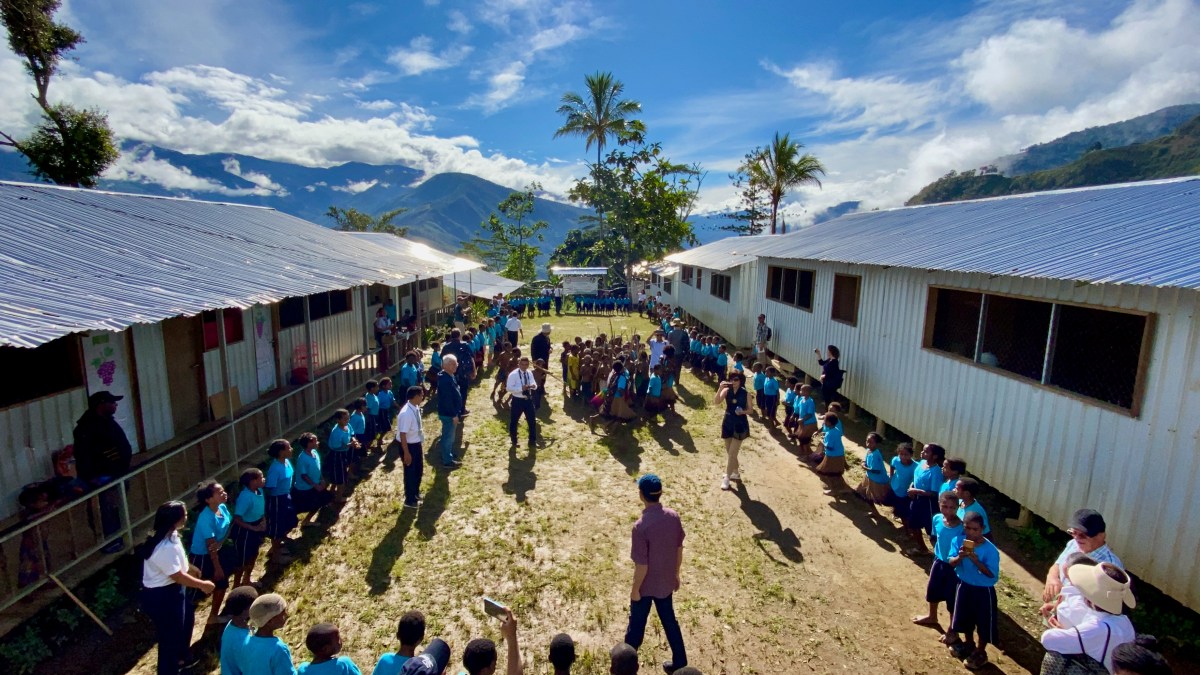 Jeremy Weber
Jeremy Weber“We are fighting against time,” Riady said. “We have only one generation of opportunity to bring the gospel through education, health care, and moral living.” This is because, as the government develops more infrastructure, it is already evident how greater connection to the outside world has begun bringing in social ills like alcohol, prostitution, and HIV.
Papua has about 400 villages with airstrips, Riady said, so that is the ceiling for the schools and clinics that YPHP could launch. However, only about 70 missionaries remain in the interior today, down from about 250 decades ago, Wiley said. The opportunities for the partnership model are narrowing.
“We see so much work to be done,” Riady said. “It costs almost as much to build in these villages as in Jakarta, due to having to fly in all materials. Is it worth the money? God reminds me every soul is valuable in his sight.
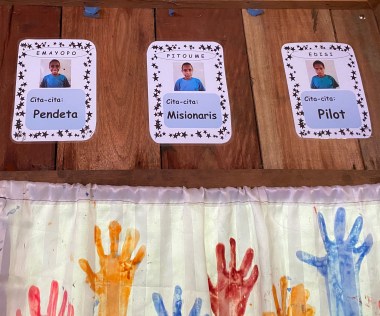 Jeremy Weber
Jeremy Weber“The biggest challenge is not the physical. It’s getting missionaries and teachers sent with a heart for the children,” he said. “We can gather the money. But the people called to missions is really God’s work.”
One of them is Wes Dale, who forgave the Yali warriors for what they did to his father, Stan, after reflecting on the words of Jesus often recited during weekly Communion at his church: “Father, forgive them, they know not what they do” (Luke 23:34).
CT met Wes in Mamit, the 4,500-foot-high village where Lin had been headed on her fateful trip. He teaches there at a Bible school for the Lani, the largest tribe in Papua at about 250,000 members. He helped other missionaries complete an entire Bible translation for the Lani. It took them 25 years.
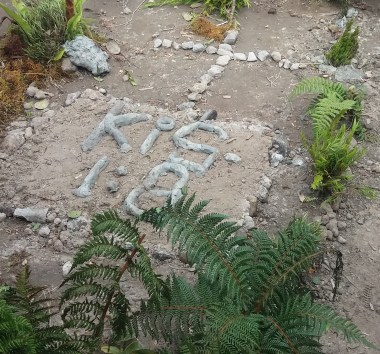 Courtesy of Joy Dale Crawford
Courtesy of Joy Dale CrawfordWes and his sister Joy went on the 50th anniversary of their father’s death to the location where he was martyred. On the ground in clay, the Yali leaders had written Acts 1:8, where Jesus tells his disciples: “You will be my witnesses … to the ends of the earth.”
It is one of several makeshift memorials in Papua to missionaries who lost their lives in order to give life to others. Lin’s memorial service was streamed live on YouTube because even family members could not travel to Papua due to coronavirus restrictions. The camera focused on her casket covered with blue and white flowers while music played and comments streamed in. One commenter wrote, “With sorrow, what is sown on the earth will be a blessing to many people.”
A video tribute honored Lin with a poem called “Your Love Shines,” written by an Indonesian entrepreneur who had visited YPHP’s fieldwork. “I really couldn’t understand how the missionaries, pilots, teachers, and doctors who served in the interior of Papua could get there and survive there in all the conditions that were really not easy,” the author explained, reflecting on the waves of missionaries who have come to “the land of the clouds,” from Dale 60 years ago to Lin in 2019:
From all corners and ends of the earth,
You sent them your beloved.
It didn’t matter the challenge and the distance here,
in a hidden place, somewhere far away.
In the dark corners of Papua,
I see the rays of your love shining brightly….
Sixty? Fifty? Forty? Thirty? Last year.
I can’t imagine how your love took them.
Twenty? Ten? Five? Two or even a year ago,
I can’t imagine how your love would send them.
In one of her last support letters, Lin wrote, “There is a famous verse that Christians like to quote from Romans 8:28, which says God is able to work all things together for the good of those He called according to His purpose.” She marveled at “the many ways in which this verse has been true in this calling to serve in Indonesia.”
Immediately after Lin’s death, a collection of red roses and handwritten notes was placed atop the steep alpine runway in Mamit, where her plane should have landed that day. But the planes keep coming, as she would have wanted.
Jeremy Weber is the director of CT Global.

